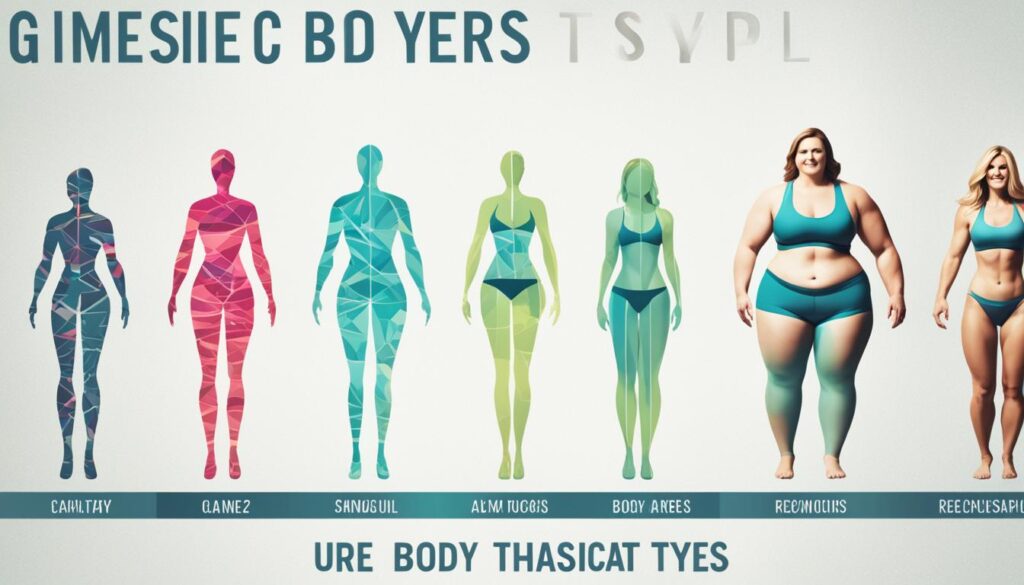In today’s tech-driven world, the constant use of electronic devices has become the norm. Whether it’s checking emails, scrolling through social media feeds, or constantly being connected to work, we are constantly bombarded with technology. However, this constant connectivity comes at a cost to our mental health and overall well-being.
A digital detox, which involves abstaining from or reducing the use of electronic devices, has emerged as a solution to the negative impacts of excessive technology use. By taking a break from technology, we can significantly improve our mental health and regain a sense of balance in our lives.
Key Takeaways:
- A digital detox involves abstaining from or reducing the use of electronic devices.
- It can have numerous benefits for mental health, including reduced anxiety and depression, enhanced focus and productivity, improved sleep, and the opportunity to build meaningful connections in real life.
- Implementing a digital detox can be done through simple steps such as setting boundaries, mandating set hours for technology use, and encouraging social interactions.
- Signs that indicate the need for a digital detox include feelings of anxiety, social withdrawal, trouble concentrating, disrupted sleep, and the constant urge to check one’s phone.
- By embracing a digital detox, individuals can find peace, balance, and overall well-being in today’s tech-driven era.
The Harmful Effects of Too Much Tech
The constant use of technology in our daily lives can have detrimental effects on our mental health and overall well-being. From increased stress to decreased sleep, addiction to technology, and changes in the brain, it is essential to be aware of the potential harm that excessive tech use can cause.
Constantly being connected to our devices and online platforms can lead to increased stress levels. When we are constantly engaged with technology, it becomes challenging for our brains to unwind and relax, leading to heightened levels of stress and anxiety.
Another harmful effect of technology overuse is disrupted sleep patterns. The blue light emitted by screens inhibits the production of melatonin, the hormone responsible for regulating sleep. Using technology, especially at night, can delay the release of melatonin, making it difficult to fall asleep and stay asleep throughout the night. This disruption affects the overall quality and duration of our sleep, leading to exhaustion and a higher risk of developing sleep disorders.
Addiction to technology is another concerning consequence of excessive tech use. Heavy internet use and constant engagement with social media platforms have been linked to addictive behaviors. This addiction can result in changes in the brain, including diminished self-modulation, lessened ability to maintain long-term goals, and easy distractibility.
Effects of Excessive Tech Use on the Brain:
- Diminished self-modulation
- Lessened long-term goal maintenance
- Easy distractibility
These changes in the brain can have a negative impact on employee performance, cognitive abilities, and overall well-being. It becomes crucial to recognize the signs of excessive tech use and take steps towards a digital detox to mitigate these harmful effects.
A digital detox can have a profound impact on reversing the harmful effects of excessive tech use. By taking a break from technology and reducing screen time, individuals can combat the heightened stress levels, improve sleep quality, and regain control over their lives and well-being.
It is important to remember that technology should serve as a tool to enhance our lives, not consume them entirely. A digital detox offers the opportunity to reconnect with ourselves, nature, and our loved ones in the real world.
Implementing a digital detox can be as simple as setting boundaries, mandating set hours for technology use, and encouraging real-life social interactions. By prioritizing our mental health and well-being, we can develop a healthier relationship with technology and lead more balanced and fulfilling lives.
What is a Digital Detox?
A digital detox is a period of time in which one abstains from or reduces the use of digital devices to rid the body of toxic or unhealthy substances. It involves unplugging from technology to take a break and reflect. The Digital Detox movement has gained traction, with companies like Digital Detox® offering programs and retreats focused on disconnecting from technology and reconnecting with oneself and others. Engaging in a digital detox can provide an opportunity to slow down, reduce stress, and improve overall well-being.
Take a moment to imagine a world without constant screen time. Think back to a time when you didn’t feel the need to check your phone every few minutes or scroll through social media endlessly. That’s the essence of a digital detox – a chance to disconnect from the digital world and reconnect with the real world.
“We are living in a technology-driven era where it’s easy to become overwhelmed and consumed by the constant barrage of notifications, emails, and social media updates,” says Jane Smith, founder of Digital Detox®. “A digital detox allows us to take a step back, create healthy boundaries with technology, and prioritize our mental and emotional well-being.”
During a digital detox, you can choose to completely abstain from using digital devices or simply reduce your usage to a minimal level. It’s an opportunity to break free from the addictive nature of technology and regain control over your time and attention.

Image: A visual representation of a person embracing nature while unplugging from technology.
A digital detox is not just about stepping away from screens; it’s about embracing activities that nourish your mind and body. Whether it’s spending time in nature, engaging in physical exercise, reading a book, or having meaningful conversations with loved ones, a digital detox offers a chance to explore other aspects of life that often take a backseat in our tech-driven society.
The Benefits of Digital Detox
Engaging in a digital detox can have a range of benefits for both your mental and physical well-being. Here are some of the key advantages:
| Benefits of a Digital Detox |
|---|
|
A digital detox allows you to break free from the constant notifications, comparisons, and distractions that come with technology. By unplugging from devices, you can experience a greater sense of calm, increased mindfulness, and improved mental clarity. This break from the digital world gives your brain the space it needs to recharge and rejuvenate.
So, are you ready to embark on a digital detox journey? In the next section, we will explore the signs that indicate you may need a digital detox and how to recognize them. It’s time to take control of your relationship with technology and embrace the benefits of unplugging.
Benefits of a Digital Detox
Taking part in a digital detox can bring about a multitude of benefits for your mental health and overall well-being. Through research, it has been found that even a short break from social media can work wonders in reducing anxiety and depression. By disconnecting from technology, you are able to eliminate distractions and experience enhanced focus and increased productivity.
“Disconnecting from technology allows for enhanced focus and increased productivity by eliminating distractions.”
Another notable benefit of a digital detox is improved sleep. When you disconnect from electronic devices before bedtime, you promote better sleep quality. The release of cortisol, which is associated with stress, is reduced, while the production of melatonin, a sleep hormone, is enhanced.
“Improved sleep is another benefit, as disconnecting from electronic devices before bed promotes better sleep quality.”
A digital detox also grants you the opportunity to engage in meaningful connections with others in real life. By stepping away from the virtual world, you can focus on building deeper and more authentic relationships, fostering a sense of belonging and fulfillment.
“Digital detoxes also provide an opportunity to engage in meaningful connections with others in real life.”
Additionally, one of the most valuable aspects of a digital detox is the freedom it affords you to prioritize activities that bring you joy. Instead of spending a significant amount of time glued to your phone or other devices, you can dedicate more time to hobbies, exploring new interests, and creating lasting memories with loved ones.
“A digital detox frees up time for activities that bring joy, as we often spend a significant amount of time on our phones and devices.”
By embracing a digital detox, you can experience reduced anxiety and depression, enhanced focus and productivity, improved sleep, meaningful connections, and more time for joy. It’s time to unplug, recharge, and reconnect with what truly matters.

Signs That You Need a Digital Detox
In today’s hyperconnected world, it’s easy to get caught up in the constant stream of information and notifications from our digital devices. However, there are certain signs that indicate it may be time to take a step back and prioritize our mental well-being by engaging in a digital detox. Here are some common signs that suggest a need for a digital detox:
- Anxiety: Feeling anxious or stressed after checking social media or receiving notifications.
- Social Withdrawal: Preferring virtual interactions over real-life social interactions, leading to isolation.
- Trouble Concentrating: Finding it difficult to focus or stay engaged in tasks due to constant distractions from digital devices.
- Disrupted Sleep: Experiencing sleep disturbances or insomnia as a result of using electronic devices before bed.
- Urge to Check Phone Constantly: Feeling a constant need to check one’s phone, even in situations where it is not necessary or appropriate.
These signs suggest that our relationship with technology may be negatively impacting our mental health and overall well-being. Taking a break from digital devices through a digital detox can help address these issues and restore balance in our lives.
Conclusion
Unplugging from technology and embracing a digital detox can lead to a healthier relationship with tech and bring about numerous benefits for mental health. In our tech-driven era, setting boundaries and creating limits are crucial in order to prioritize activities that nourish both the mind and body. By taking deliberate steps to disconnect, individuals can effectively reduce stress, enhance focus and productivity, improve sleep quality, build meaningful connections, and make more time for activities that bring joy.
Engaging in a digital detox allows us to step back from the constant barrage of notifications and distractions, enabling us to find peace, balance, and overall well-being. It provides an opportunity for self-reflection and a chance to reconnect with ourselves and others on a deeper level. By consciously unplugging from technology, we can regain control over our lives and create a healthier, more balanced relationship with the digital world.
Remember, a digital detox is not about completely abandoning technology, but rather about finding a healthy equilibrium. It’s about being mindful of our tech use and finding a balance that works for us, allowing technology to enhance our lives instead of overwhelming them. By embracing a digital detox, we can reclaim our time, protect our mental well-being, and cultivate a healthier and more mindful approach to our tech-filled world.
















